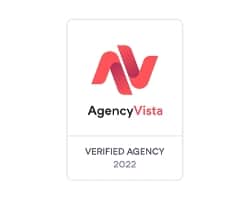Technology has changed the way people access the internet, mobile optimization has become critical for the success of any website. With an increasing number of people accessing the internet on their smartphones and tablets, having a mobile-friendly website has become more important than ever before.
Mobile Optimization and User Experience
One of the primary reasons why mobile optimization is critical for website success is the impact it has on user experience. A website that is not optimized for mobile devices can be challenging to navigate on a small screen, with tiny text and graphics that are too small to read or click on. This can lead to frustration and a poor user experience, which can quickly drive users away from your website.
On the other hand, a website that is optimized for mobile devices is much easier to navigate and read on a smaller screen. The text and graphics are larger, and the layout is designed to fit the smaller screen size, making it easier for users to interact with your website. A good user experience leads to better engagement, increased time on site, and a higher likelihood of users returning to your website in the future.
Mobile Optimization and SEO
Another reason why mobile optimization is critical for your website’s success is the impact it has on your search engine optimization (SEO) efforts. In 2015, Google announced that mobile-friendly websites would receive a boost in search engine rankings. This means that if your website is not optimized for mobile devices, it is likely to rank lower in search engine results pages (SERPs), making it harder for users to find your website.
Mobile optimization can help improve your website’s SEO in several ways. Firstly, it can help improve your website’s loading speed, which is a critical ranking factor for search engines. A website that is optimized for mobile devices typically loads faster than a website that is not optimized, leading to a better user experience and higher search engine rankings.
Secondly, mobile optimization can help improve your website’s bounce rate. A bounce rate is the percentage of users who leave your website after viewing only one page. A high bounce rate can negatively impact your website’s SEO as it indicates that users are not finding the content on your website relevant or engaging. A website that is optimized for mobile devices is more likely to keep users engaged, leading to a lower bounce rate and higher search engine rankings.
Mobile Optimization and Conversion Rates
Finally, mobile optimization can have a significant impact on your website’s conversion rates. A conversion rate is the percentage of users who take a specific action on your website, such as making a purchase, filling out a form, or subscribing to a newsletter. If your website is not optimized for mobile devices, it can be challenging for users to complete these actions, leading to lower conversion rates.
A website that is optimized for mobile devices can help improve your conversion rates by making it easier for users to take action on your website. A mobile-optimized website typically has larger buttons, simplified forms, and easy-to-use navigation, making it easier for users to complete the desired action.
Mobile optimization is no longer optional in today’s digital landscape. With more than 60% of internet traffic coming from mobile devices, having a mobile-friendly website is critical to the success of any business. Mobile optimization refers to the process of designing a website that looks great and performs well on mobile devices, such as smartphones and tablets.
In this article, we will discuss mobile optimization best practices that can help you create a website that looks great and performs well on mobile devices.
Responsive Design
Responsive design is a website design technique that allows a website to adjust its layout to fit different screen sizes. This is important because mobile devices come in a variety of sizes, and a website that looks great on one device may not look great on another. Responsive design ensures that your website will look great on any device, regardless of the screen size.
Use Mobile-Friendly Fonts
When it comes to mobile optimization, fonts matter. It is important to choose fonts that are easy to read on a mobile device. Sans-serif fonts are generally the best choice for mobile devices because they are easier to read on small screens. It is also important to choose font sizes that are large enough to read on a small screen.
Optimize Images
Images can greatly enhance the visual appeal of a website, but they can also slow down the loading speed of a website, especially on mobile devices. To optimize images for mobile devices, you should compress them and use the appropriate file format. JPEG is the best format for photographs, while PNG is the best format for graphics with transparency.
Use Accelerated Mobile Pages (AMP)
Accelerated Mobile Pages (AMP) is an open-source project that aims to make web pages load faster on mobile devices. AMP pages are stripped-down versions of regular web pages that load quickly and use fewer resources. By using AMP, you can improve the loading speed of your website on mobile devices, which can greatly improve the user experience.
Minimize Pop-Ups and Interstitials
Pop-ups and interstitials are often used by websites to promote products or collect email addresses. However, they can be annoying on mobile devices, where screen real estate is limited. It is important to minimize the use of pop-ups and interstitials on mobile devices to avoid frustrating your visitors.
Use Clear and Concise Headings
When it comes to mobile optimization, headings matter. Clear and concise headings can make it easier for visitors to find the information they are looking for. It is also important to use hierarchical headings (H1, H2, H3, etc.) to indicate the structure of your content.
Optimize Your Calls-to-Action (CTAs)
Calls-to-action (CTAs) are the buttons or links that encourage visitors to take a specific action, such as making a purchase or filling out a form. To optimize your CTAs for mobile devices, you should make them easy to find and click on. It is also important to use clear and concise language to describe the action you want visitors to take.
Simplify Navigation
Navigation is critical to the user experience on a website, especially on mobile devices. It is important to simplify navigation on mobile devices to make it easy for visitors to find what they are looking for. You should use a simple and intuitive menu structure and limit the number of links in your menu.
Test Your Website on Mobile Devices
Finally, it is important to test your website on mobile devices to ensure that it looks great and performs well. You should test your website on a variety of devices and screen sizes to ensure that it looks great on all devices. You can also use tools like Google’s Mobile-Friendly Test to check the mobile-friendliness of your website.
In addition to these best practices, there are several other factors that developers should consider when optimizing for mobile devices. For example, websites should be designed with accessibility in mind, ensuring that users with disabilities can access content and navigate the site. Additionally, developers should ensure that their websites are secure, using HTTPS and SSL certificates to protect user data.
Overall, mobile optimization is a critical aspect of modern web development. As more users rely on mobile devices to access the internet, it is essential for websites to be optimized for these platforms. By following mobile optimization best practices, developers can ensure that their websites provide a seamless user experience on any device.
About Millennium Agency
Millennium Agency is a nationally recognized, top woman led B2B branding, positioning, and digital marketing firm who creates value that builds emotionally impactful brands that influences your customer’s buying decision, giving you the competitive advantage. As your industry partner for B2B pharma/biotech, technology and manufacturing, our proprietary research-based framework makes a strong impact and accelerates your brand growth. While you focus on what you do best – running your business successfully – our team will build your brand, and drive leads. For more information, call 877-873-7445 or schedule time here.


























